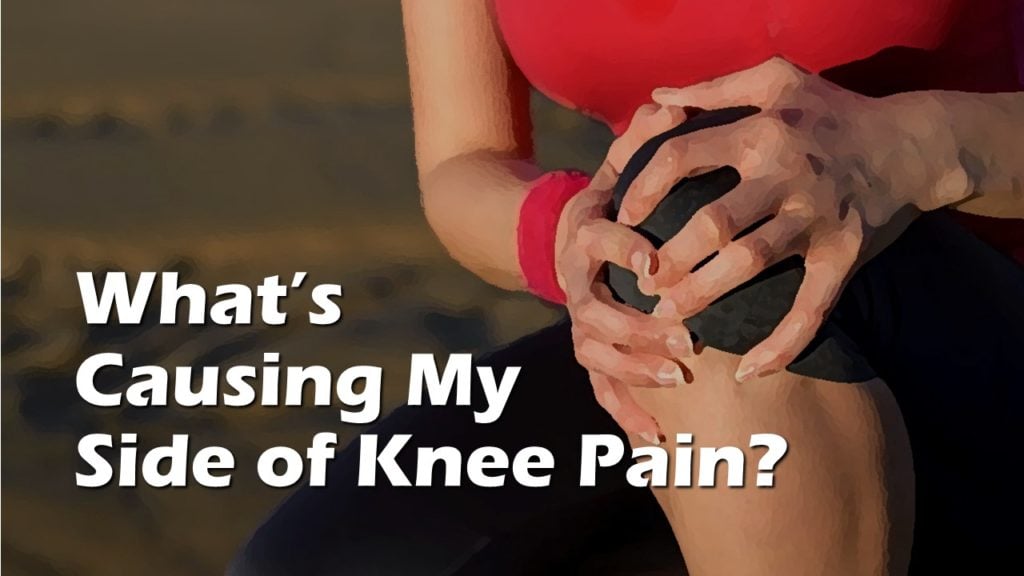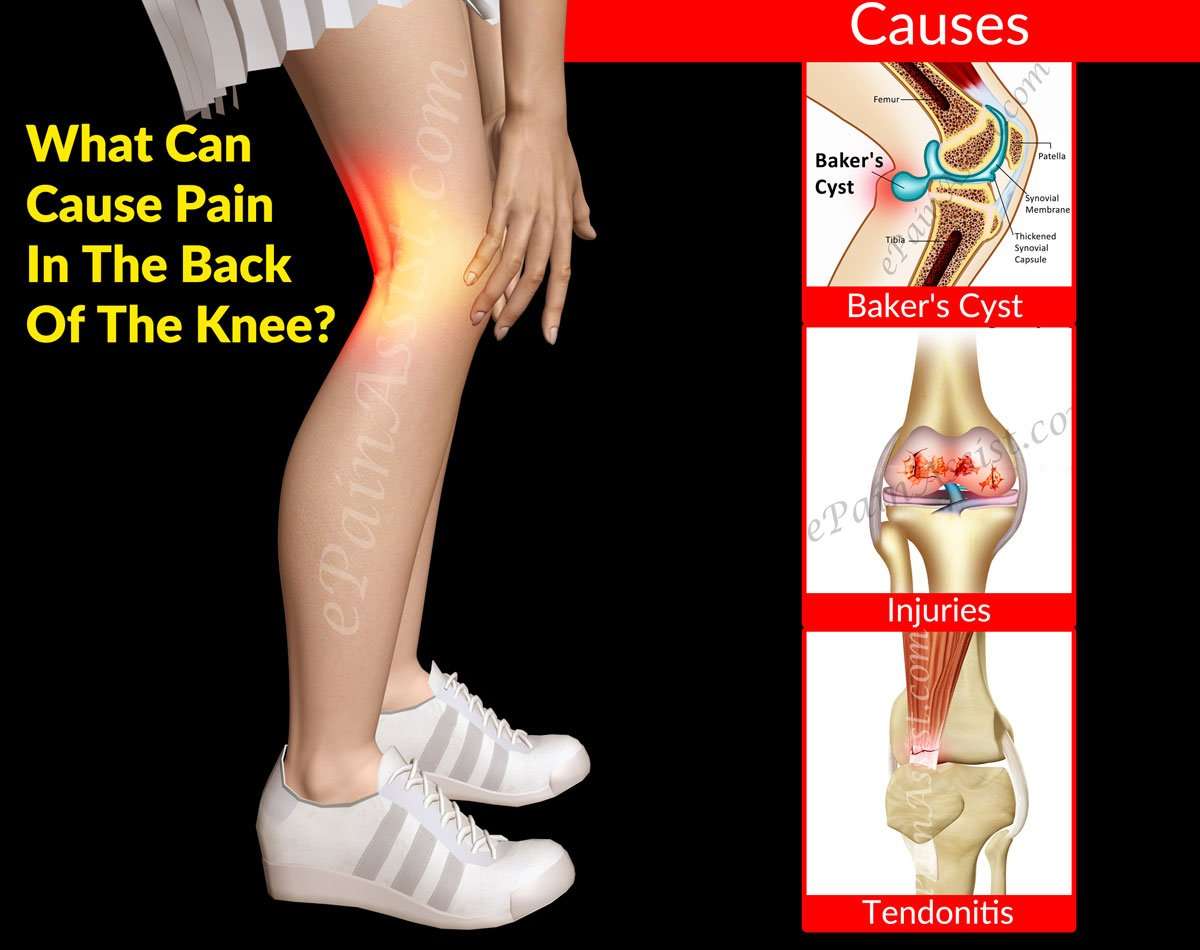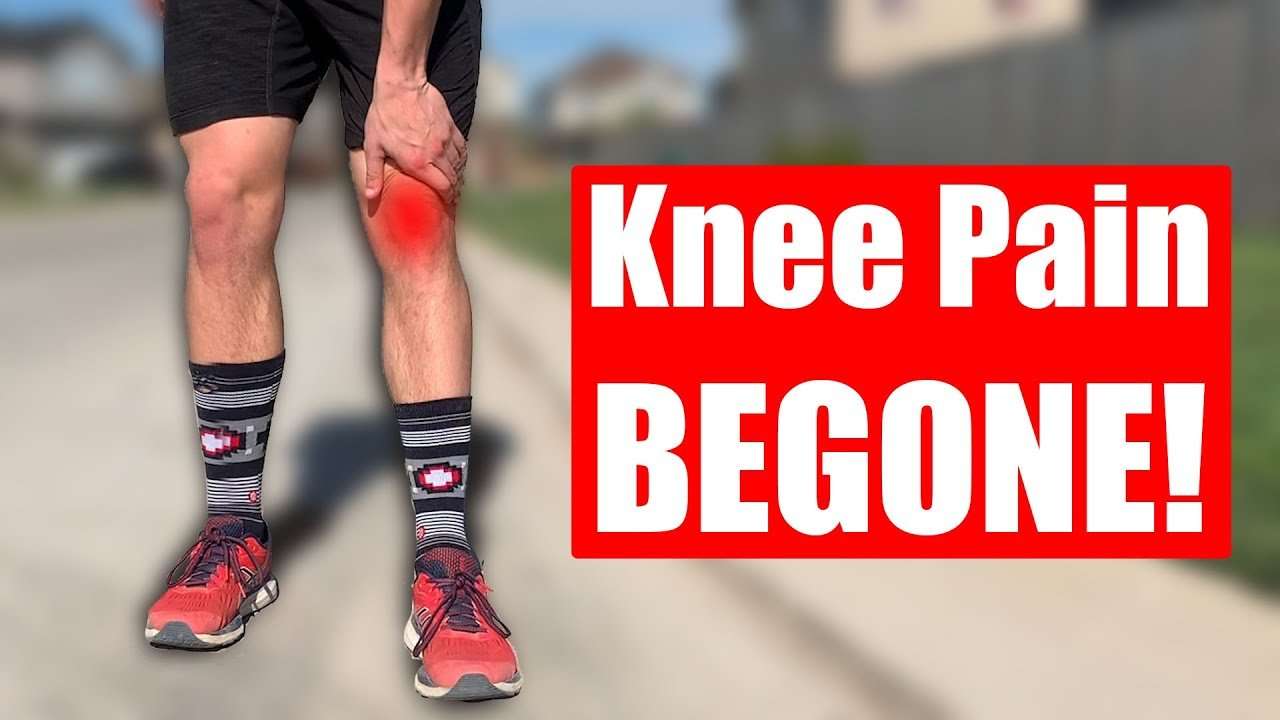Burning Pain In Knee Cap
When you feel pain in your knee cap, you imagine the worst. You begin to believe you’ve injured your knee. Maybe you even wonder if you have a torn meniscus.
Burning pain under or around your knee cap is a common overuse injury. The official diagnosis for this syndrome is chondromalacia or patellofemoral pain syndrome, also known as PFS. The injury is also commonly known as runner’s knee.
When you run, you put stress on your knee cap and the tendons in it. If you’re not used to running long miles and attempt a long run, you will feel this pain. You will also feel it if you begin to increase your mileage too quickly.
Your tendons in your knee cap are firing up and becoming inflamed. You have tendonitis in your knee or runner’s knee.
Stopping activity will help this heal more quickly as will ice and appropriate NSAID or anti-inflammatory medications.
How Are Knee Problems Diagnosed
In addition to a complete medical history and physical exam, other tests for knee problems may include:
-
X-ray. This test uses invisible electromagnetic energy beams to make images of internal tissues, bones, and organs onto film.
-
Magnetic resonance imaging . This test uses large magnets, radiofrequencies, and a computer to make detailed images of organs and structures within the body can often determine damage or disease in a surrounding ligament or muscle.
-
Computed tomography scan . This test uses X-rays and computer technology to make horizontal, or axial, images of the body. A CT scan shows detailed images of any part of the body, including the bones, muscles, fat, and organs. CT scans are more detailed than general X-rays.
-
Arthroscopy. A minimally-invasive diagnostic and treatment procedure used for conditions of a joint. This procedure uses a small, lighted, optic tube , which is inserted into the joint through a small incision in the joint. Images of the inside of the joint are projected onto a screen used to evaluate any degenerative or arthritic changes in the joint to detect bone diseases and tumors to determine the cause of bone pain and inflammation.
-
Radionuclide bone scan. A nuclear imaging technique that uses a very small amount of radioactive material, which is injected into the patient’s bloodstream to be detected by a scanner. This test shows blood flow to the bone and cell activity within the bone.
Is Anything Strange Happening
Or really, Is anything strange happening beyond your knee pain?
For example, can you still flex your knee all the way? Most people get frightened when their knee locks and cant straighten anymore. Often the culprit is called Bakers cyst, a fluid-filled sac behind the knee caused by inflammation.
A also triggers concern for many people. Nobody wants to hear a click with every step. Sometimes, its harmless, but if that clicking comes with pain, you might have a mechanical problem such as a torn meniscus, Dr. Burg says.
These are just a few examples among many. The knee is a complicated andcritical part of your everyday life. So when you have pain that comes withserious symptoms or lasts for more than a week or two, seek the right diagnosisby getting a physical exam and any necessary imaging that comes with it.
Recommended Reading: What Is The Best Knee Walker
When To See The Doctor
Sure, its tempting to use an online knee pain symptom checker to try to figure out whats causing your pain. The problem is, because joints are complex, knee pain self-diagnosis is very difficult. Like all your joints, your knees are designed to function without pain or stiffness. No amount of pain or stiffness is normal.If you notice any type of discomfort in or around your knee joint, its always a good idea to schedule an office visit with Dr. Van Thiel.
As a leading orthopedic surgeon in Rockford and Crystal Lake, Dr. Van Thiel uses advanced diagnostic methods to make sure you receive the best, most appropriate care for meaningful pain relief. To find out whats causing your knee pain, call OrthoIllinois at 398-9491 or schedule an appointment online today.
Dr. Van Thiel treats patients from all over Wisconsin and Illinois including Rockford, Elgin, Huntley, Dekalb, Crystal Lake, Barrington, McHenry, Beloit and Algonquin.
Why Does My Knee Hurt When I Straighten It

Your knee is made up of bones, cartilage, muscles and tendons. When you extend your knee, your quadriceps muscles tighten, and your hamstrings relax. Pain on knee straightening is usually indicative of damage or overuse of the quadriceps muscles, leading to tiny tears in its tendon. Pain may also occur due to any damage to the joint itself. You may get pain specifically in the back of the knee due to cyst formation following injury of the joint.
Don’t Miss: Dcf Compression Knee Sleeve
What To Expect At Your Office Visit
Your provider will perform a physical exam, and look at your knees, hips, legs, and other joints.
Your provider may do the following tests:
- MRI of the knee if a ligament or meniscus tear could be the cause
- CT scan of the knee
- Joint fluid culture
Your provider may inject a steroid into your knee to reduce pain and inflammation.
You may need to learn stretching and strengthening exercises. You also may need to see a podiatrist to be fitted for orthotics.
In some cases, you may need surgery.
Coping Strategies For Runners With Anterior Knee Pain:
- A shorter stride: a shorter stride allows you to control your pelvic drop better.
- A higher cadence : This also minimizes your pelvic drop and other gait abnormalities.
- Avoiding hilly terrain until the pain has lessened.
- Progressive, intelligent training. Consider using apps such as HRV4Training, Training Peaks or TrainAsOne.
- Patella taping: See the video at the end of this post.
- Orthotics or shoe inserts: These have been shown to work in some of you.
- Prevention: Keep your glutes/ hip abductors / core strong. See the exercise videos at the end of this post.
Recommended Reading: How To Use Ginger For Knee Pain
Treatment For Knee Problems
If initial treatment methods do not provide relief, and X-rays show destruction of the joint, the orthopaedist may recommend total joint replacement for the knee, also referred to as knee replacement.
ACL Tears in Female Athletes: Q& A with a Sports Medicine Expert
Sports injury prevention isn’t a one-stop shop, especially for injuries like ACL tears, which are four to eight times more common among women than men. Discover ways for women to help prevent this common injury.
Why Do I Feel Knee Pain When I Exercise
If youre under the age of 50 and you feel sudden knee pain when you exercise, you probably have a sprain or a strain. Symptoms include tenderness and swelling, and you may not be able to put weight on the injury or use it normally.
If youre over 50 and you feel sudden knee pain, its more likely that its a sign of arthritis. Exercise can trigger symptoms of arthritis that are already present in the knee but havent yet been identified. Your doctor may book you in for X-rays if theysuspect you have arthritis.
You May Like: How Much Does Aflac Pay For Knee Surgery
So What Can I Do About It
Stretch, stretch, stretch! Often times one of the major factors contributing to overuse injuries is inflexible muscles. Athletes need to pay particular attention to stretching the muscles surrounding the knees and hips specifically, hamstrings, quadriceps, hip flexors, piriformis, and calf muscles. Hold each stretch steadily for 30 seconds and repeat each 3 to 4 times.
There are also some basic strengthening exercises that can help decrease anterior knee pain:
What You Need To Know
- The most common causes of knee pain are related to aging, injury or repeated stress on the knee.
- Common knee problems include sprained or strained ligaments, cartilage tears, tendonitis and arthritis.
- Diagnosing a knee injury or problem includes a medical examination and usually the use of a diagnostic procedure such as an x-ray, MRI, CT scan or arthroscopy.
- Both non-operative and surgical treatment options are available to treat knee pain and problems depending on the type and severity of the condition.
Recommended Reading: How Much Does Aflac Pay For Knee Surgery
What Are The Signs & Symptoms Of Pfp Syndrome
Patellofemoral pain syndrome causes pain under and around the knee. The pain often gets worse with walking, kneeling, squatting, going up or down stairs, or running. It may also hurt after sitting with a bent knee for a long time, such as in a long car ride or in a movie theater.
Some people with PFP syndrome feel a “popping” or creaking after getting up from sitting or when going up or down stairs.
What Causes Sharp Burning Pain In The Knee

Before you identify the cause of sharp burning pain, you need to identify the pain and the location. What does burning pain in the knee mean?
It means that your pain does not just generally ache. You have a sharp, burning sensation in the front, on the side, or on the back of your knee. You can have it while you’re kneeling, while you’re just standing still, and even when you’re sleeping.
Read Also: Whiten Knees Fast
Quadriceps Stretching In Standing
We can do quadriceps stretching in a standing position as well. For this stand normally, then bend the knee, and now hold legs behind yourself. Make sure to stand as straight as possible. If you are stumbling, grab something firmly.
Then again, with this hand bend your knees, press towards buttocks. Try to keep your hip full straight, avoid any slouch or bending. Now look at the image carefully, I have not to bend the hip, I have a perfectly straight hip. Then I am pulling my heel towards the buttocks with my hands. So youll get a nice stretching on front of the thigh. You should also hold it for a minimum of 30 seconds, do it thrice in a single session, two to three times a day.
How To Identify The Culprit And Which Drugs Injections And Habits Will Bring You The Most Relief
by Alison Gwinn, AARP, September 20, 2019
En español | Oh, my aching knees! If that’s your daily refrain, whether you’re walking the dog, climbing stairs or just sleeping, you’re not alone.
For many, the culprit behind that nagging soreness is osteoarthritis, which affects an estimated 31 million Americans quite often, in this particular joint according to the Arthritis Association.
But there are other common causes of knee pain, stemming from the fact that knees are our largest, most complex joints. Knee joints allow you to stand up straight, walk stairs and get up and down from sitting, says Daniel Saris, an orthopedic surgeon at the Mayo Clinic and professor of orthopedic surgery at the Mayo Medical School. But they are also the most difficult joint because they’re not stable. Hip joints and ankles are both pretty stable by themselves, but the knee is just three bones trying to be good friends, and they need muscles and ligaments for stability.”
Knee pain is not to be taken lightly. A Japanese study, published last year in the Journal of the American Geriatrics Society, found a link between the onset of knee pain in people 65 or older and depression. And a recent study from the University of North Carolina School of Medicine Thurston Arthritis Research Center and Harvard’s Brigham and Women’s Hospital found that knee pain in men and women over age 45 correlated with higher rates of death.
Also Check: Roller Knee Walker
Exercise Program For Pain In The Front Of Your Knee :
Many of you are afraid to exercise. Yes, some of you may have pain with a few of these exercises. You can start with quadriceps isometric exercises, or simply dont go too low with the squat, lunge or wall sit until your strength improves. Most of you will find that after doing these exercises 3 days/week for two weeks that your pain will start to improve. As I mentioned previously, this is a program that can take 6-12 months to fully correct the weakness pattern that led to pain in the front of your knee. So stick with it.
Squat: I like the variations that this group throws in. You do not and should not start with 100 if you are just starting out.
Chair Squats are the place to start if you dont have the strength or confidence.
Wall Sits: A great quadriceps exercise. This video is a little mechanical, but it contains the dos and donts of how to perform a wall sit.
Reverse Lunges: Easier than forward lunges. Dont lunge back further than you can handle. That distance will get further over time. Focus on your front knee so it doesnt wobble back and forth.
Planks: This video includes a good description of the proper technique, and it gives you 10 different variations to try.
Hamstring bridge exercise. If this is too easy you can rest a barbell across your pelvis, or a kettlebell on your lower abdomen.
Why Do My Knees Hurt After Running
Why do you run? Because it feels good. Because it relieves stress. Because it enables you to eat cake. I get that, because running is also important to me. Im a 32-time marathoner who knows how frustrating it is to be injured. Its the reason I became a sports doctor. Ripping my anterior cruciate ligament playing football when I was in medical school was devastating, but it was the single most important event to influence my work. Its what drives me to help my patients. Almost every day I treat runners with achy knees. Many are freaked out: can I still run? Will I have to switch to swimming? Thankfully, most knee problems wont keep you off the road for long. Heres what you need to know about common knee injuries.
Don’t Miss: Inversion Table Benefits For Knees
How Can I Prevent Knee Pain
Although you canât prevent all injuries, you can take these steps to make them less likely.
- Stop exercising if you feel pain in your knee.
- If you want to make your workout more intense, always do it gradually.
- Stretch your legs before and after physical activity.
- Use kneepads to prevent bursitis, especially if you have to kneel a lot.
- Wear shoes that fit well and offer enough support.
- Keep your thigh muscles strong with regular stretching and strengthening.
- If youâre overweight, work to drop some pounds so thereâs less stress on all of your joints, including your knees.
Ask The Expert: What Is Causing The Pain Under My Kneecap
The knee is a complicated structure with tons of muscles and ligaments that can become injured and cause pain. Many of our patients come to us after experiencing persistent knee pain desperate to find the underlying cause of the discomfort. If you are experiencing pain in your knee, specifically under your kneecap, one common cause of this may be Patellofemoral Pain Syndrome , a condition in which the area under your kneecap is irritated and causes pain.
WHAT IS PATELLOFEMORAL PAIN SYNDROME ?
The underside of the kneecap, or patella, is covered in cartilage that can become irritated if there is excessive rubbing between the kneecap and femur bone. The pain is typically aggravated by activities that cause compression around the patellofemoral joint including biking, weight-lifting, and running. PFPS can affect anyone but we mostly see it in the younger, more active population.
TOP 3 CAUSES OF PFPS:
1. Kneecap Movement Dysfunction: Normal movement of the kneecap should be up and down, but if a movement dysfunction is present it may move side-to-side. If this occurs, it can place a large amount of pressure behind the kneecap in areas that arent used to compression, resulting in irritation and pain.
HOW TO TREAT PFPS
Whatever the cause of your Patellofemoral Pain Syndrome, our certified physical therapists can identify and fix the underlying issue so you can get back to your active lifestyle.
Read Also: How Do I Get Rid Of Fat Around My Knees
What Causes Pfp Syndrome
Patellofemoral pain syndrome is an overuse disorder. These happen when someone does the same movements that stress the knee over and over again.
In PFP syndrome, repeated bending and straightening the knee stresses the kneecap. It’s most common in athletes.
Some people with PFP syndrome have a kneecap that is out of line with the thighbone . The kneecap can get out of line, or wiggle as it moves along the thighbone, because of muscle weakness, trauma, or another problem. If this happens, the kneecap doesn’t glide smoothly over the thighbone when the knee bends and straightens. The kneecap gets injured and this causes the pain of PFP syndrome.
How Do You Know If You Have A Blood Clot Behind Your Knee

A blood clot in the veins of your lower leg is called a deep vein thrombosis or DVT. You may have a blood clot behind your knee if you have one-sided leg swelling, pain, warmth, and redness below the knee. Sometimes these clots can occur on both sides at once, but this is uncommon. Some blood clots in the legs, however, do not present with any symptoms. A DVT requires immediate treatment to reduce the risk of embolizing to the lungs.
Don’t Miss: How To Get Rid Of Knee Fat And Cellulite